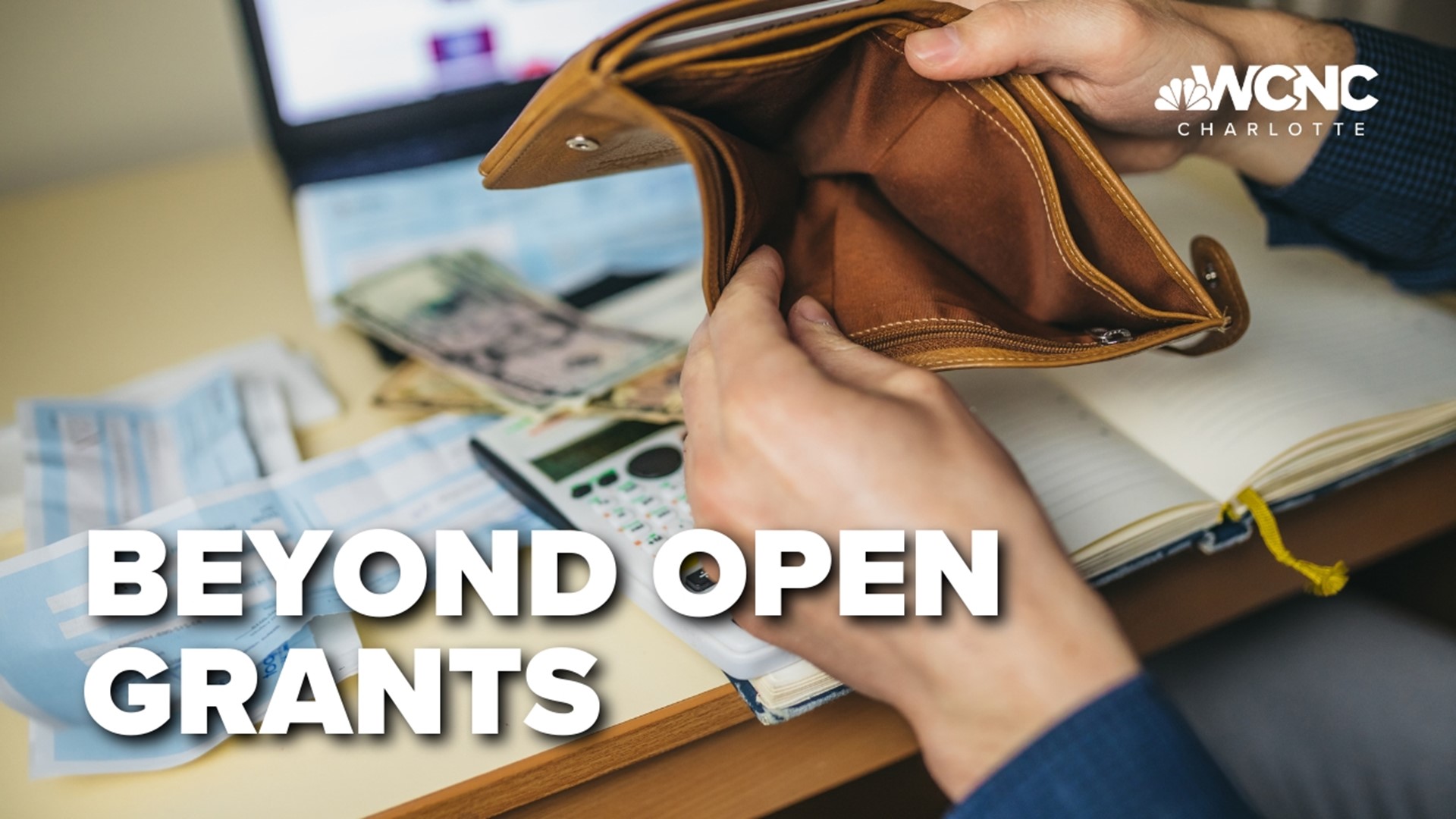CHARLOTTE, N.C. — A $15 million grant program, aimed at helping diverse small business owners in Mecklenburg County, bestowed nearly $6 million in the first round of three, however, some applicants who were denied are questioning the selection process and wondering if it's worth the time and effort to apply again.
Joyce Saint-Cyr spent two weeks in late 2022 building the strongest application possible for a $250,000 Beyond Open CLT small business grant.
Saint-Cyr had high hopes the money would help her Charlotte-based accounting firm expand.
"I was very hopeful, and I felt that I had a good understanding of what was necessary," she said. "I didn't just throw numbers around. I really put in the work."
She was so optimistic about the program, she even recommended that her clients apply.
"I know the struggle," she said. "When I first started, I couldn't even put gas in my car. I couldn't even afford lunch. This grant was just really going to help people sustain themselves coming out of COVID. This was a lifeline for so many individuals."
The Wells Fargo-funded grant program dashed her hopes on Jan. 27, 2023.
"It was very disappointing and discouraging," Saint-Cyr said.
More than 3,000 others received similar emails.
"On behalf of the Beyond Open program, we regret to inform you that after thorough consideration, we are unable to provide funding for the requested grant in Round 1," the early morning denial email read. "Although we would like to respond affirmatively to all applications, we received far more applications than available funds will allow the program to support. Due to the volume of requests, we are unable to provide individual feedback regarding grant decisions."

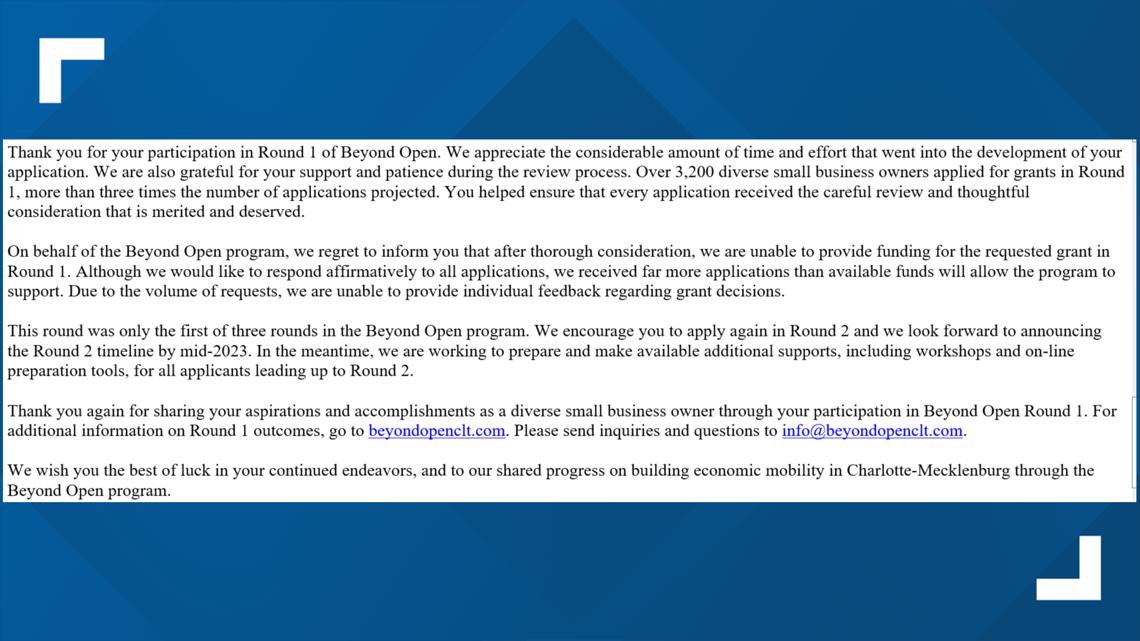
WCNC Charlotte is always asking "where's the money?" If you need help, reach out to WCNC Charlotte by emailing money@wcnc.com.
The small business grant program will spread out funding over the course of three rounds, but Saint-Cyr is reluctant to reapply.
"I don't think any one of us really wants to put the effort again," she said. "Why take the time and the effort and the resources to submit an application if we don't even know if we're going to meet the requirements?"
That's only part of her frustration. She also felt deflated after learning several Beyond Open CLT Advisory Council members received grants from the program in Round 1.
"It just supports it's who you know," she said. "I feel more needs to be told about how they selected those that got the grant."
WCNC Charlotte started investigating Beyond Open CLT in January after hearing similar concerns from other small business owners.
"We're mindful of the optics"
Foundation for the Carolinas is administering the program. Special advisor for civic initiatives Tracy Russ said the organization made the deliberate decision to allow the same voices who serve on the program's advisory council to apply for and receive grants. However, he said none of those council members were afforded any advantage as a result.
"It isn't about relationships or who knows who or special connections," Russ said. "In some ways, it would be a bit incongruous of us to ask for their guidance and wisdom and to leverage their trust in the community on behalf of a program that they're disallowed from participating in. We had to balance and weigh that question out very carefully."

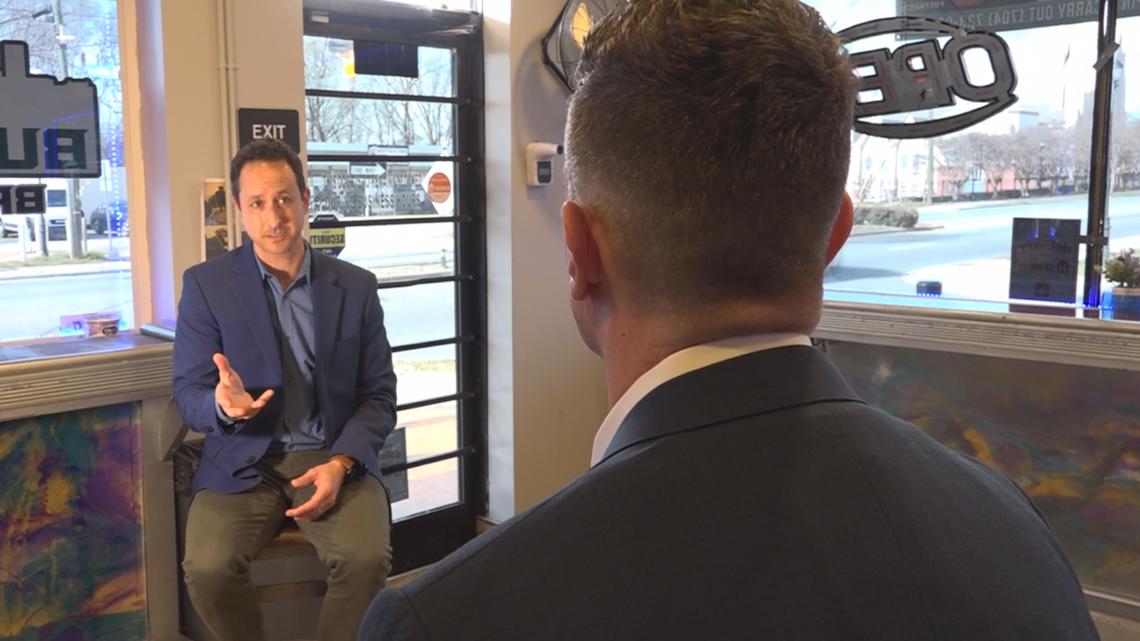
Russ said an independent team, whose members were not eligible to apply for grants, reviewed all applications and then selected grantees based on how they scored against the program criteria, with priority given to those within or next to Charlotte's six "Corridors of Opportunity."
"We decided to separate completely advisory council members from the grant review process, from the decision-making process and to keep those completely apart," Russ said. "There are a number of levels of safeguards."
"Are you comfortable with the optics?" WCNC Charlotte asked.
"We're mindful of the optics," Russ replied. "We're concerned anytime a community member has a question about any program that is meant to be community-centric and involved and their belief that the system and the processes in it are fair and equitable and that their interests are paramount."
He said it's clear they need to do a better job of communicating. The program has since updated its website to include more details about its advisory council.
"We need to work very, very hard for them to believe in the process they're participating in," he said.
Records reviewed by WCNC Charlotte reveal one of the grant recipients isn't even located in Charlotte, which is a basic requirement. Secretary of State filings suggest that a specific grantee is ineligible since the business is based in Mooresville.
Russ said the company in question hasn't received its money yet and now that WCNC Charlotte has pointed out the discrepancy, the business may not get the grant after all. He attributed the situation to an oversight.
"The number of applications that we received certainly means there was a lot to review and look at," Russ said. "We're in discussions with that applicant."
He said Beyond Open CLT stands behind every other selection.
"We hear you"
Russ said Beyond Open CLT has heard feedback from denied business owners and plans to better prepare interested companies ahead of the second round of funding, which is slated for later this year.
"Our focus is on you and supporting you and your small business. We will continue improving the process to make it the best for you," Russ said. "We want to do the best job that we can of providing feedback. It won't be one-on-one."

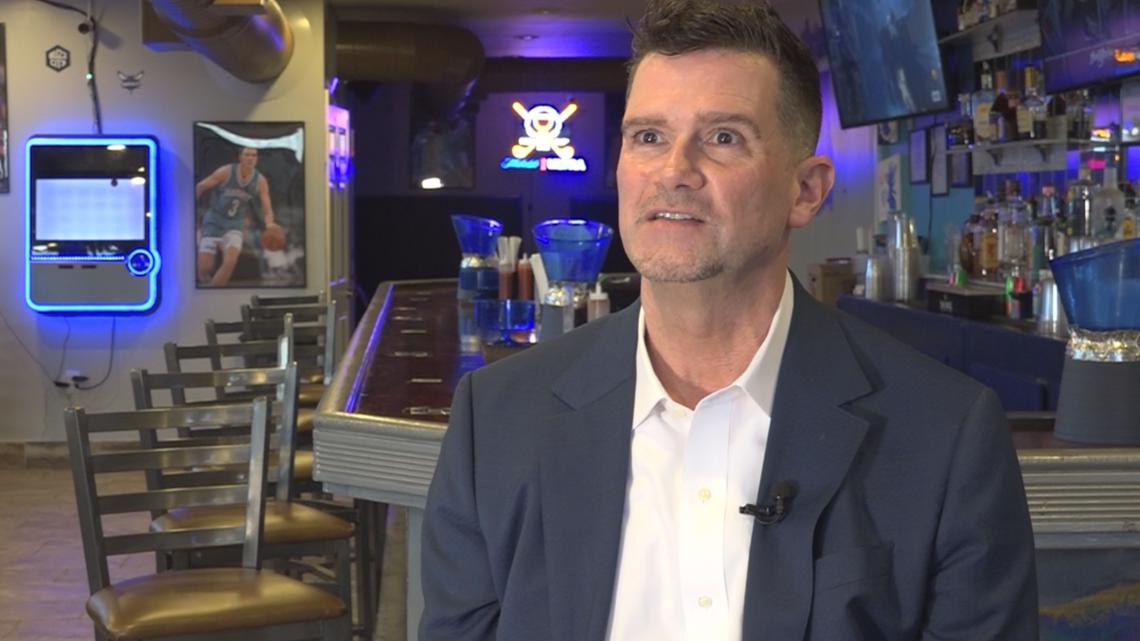
He knows business owners want feedback, improved support and more time to prepare their grant applications. He said the program intends to hold workshops and question-and-answer seminars to address that need.
"Start early and attend upcoming workshops in preparation as early as you can as soon as we announce it," Russ recommended. "Make sure that you have all of your documents well prepared, your financial records, those kinds of things that might be asked for in advance of starting your actual application and attend these workshops and these seminars. Ask questions. Make sure you leave these workshops and seminars with a very clear idea of exactly what you need to do and exactly what you need to prepare the strongest and best application for your diverse small business."
Beyond Open CLT originally expected to receive 1,200 applications. Instead, 3,200 small businesses and non-profits applied. As a result of the demand, Russ said the program could only award 178 grants in the first round.
"Difficult decisions had to be made with our limited resources," Russ said.
Why applications were denied
According to the program, applications generally received lower scores for these primary reasons:
- Not eligible or uses not allowed
- Applicant is not a diverse small business owner
- Applicant business is not located in Mecklenburg County as shown by documentation and address provided by applicant
- Request includes operational expenses that are not allowed for grant use such as payroll, debt repayment, training, utilities
- Missing, incomplete or inaccurate documentation and information
- Required documents missing, incomplete or outdated
- Two cost estimates for asset not provided (required for assets over $20k).
- Required financial documents (such as profit and loss statements, cash flow reports) missing, incomplete or do not show credible or consistent information
- Mismatch between amount of request and cost of asset to be acquired as documented by cost estimates
- Description of business services or products vague and unsupported by related documentation and information
- Requested or required business goals and business plan lack clarity, are not well defined or described, or do not credibly illustrate clear planning and/or measurable outcomes
- Connection(s) between grant request and business goals weak or lacking in detail
- Application lacked strong or very clear connections between the asset to be acquired and how the asset would create clear, specific business impacts and help achieve business goals
- Weaker applications included extensive list of unrelated assets or a “laundry list” of many or all business needs as opposed to a single asset, or very closely related assets, that will help to achieve clear business outcomes
- Asset to be acquired not clearly described or without specific model, type or other detailed information
- Grant request is for purchase of real estate for unspecified property, or for lease support longer than two months (making it an operating cost which is not allowed)
"I was struggling"
Michelle Ashley is one of the small business owners lucky enough to be selected.
"I'm very thankful for the program because it will allow me to do things I wasn't able to do before," she said. "I was struggling."
Ashley opened Buzz City Bar & Grill a year ago. She plans to use her money to buy a truck, so she doesn't have to spend several hours each day picking up supplies.
"I was very excited," she said of her $20,000 grant. "Now I can make one trip."

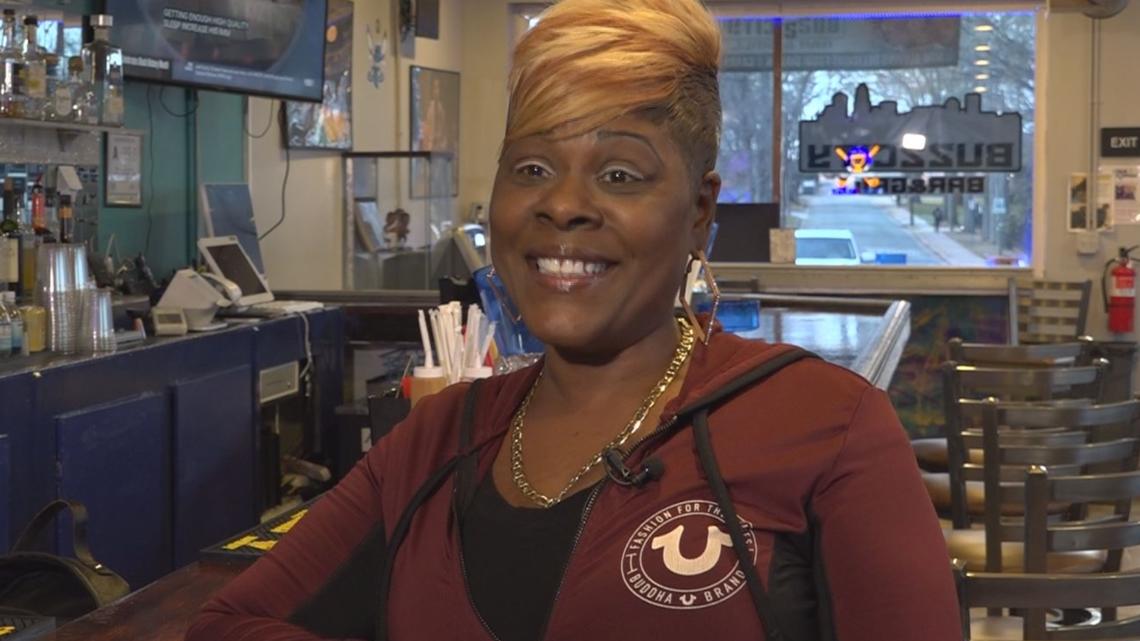
Ashley grew up along Beatties Ford Road, so it only made sense to open her business there.
"I was affected by this area as a kid when I was raised here, so I wanted to be a part of the solution here," Ashley said. "I plan to be here until I can't be here no more."
Beyond Open CLT reports 90% of grant recipients in the first round identified as a person of color, 72% identify as located within or near/adjacent to one of the six Corridors of Opportunity, 61% identify as female, 13% identify as LGBTQ and 8% identify as veterans.
Aside from business owners, the program separately funded some nonprofits "primarily focused within the small business support ecosystem."
"We want to be a part of building economic mobility," Russ said.
Russ said most applications from the first round targeted grants of $20,000 or less. He said those applications tend to require less documentation but have a higher likelihood of getting approval. Businesses can use grants to buy equipment, technology, real estate and inventory.
"The need is far far greater than we can fulfill with our own limited resources, but we're going to do the best that we can," Russ said. "We will try to deliver the maximum impact to diverse small business owners."
"It's betrayal"
Joyce Saint-Cyr said she could've used a grant to buy equipment and grow her small business. She's still trying to find the right words to explain the way she feels about her denial.

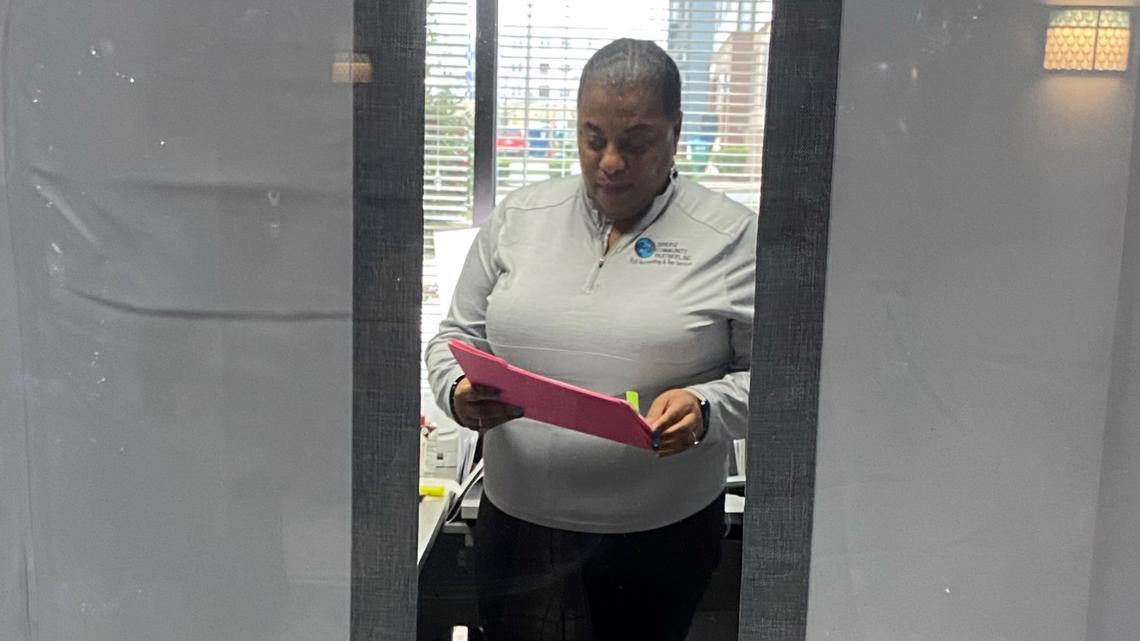
"I know misled," she said. "I guess you could say it's betrayal because you're asked to apply for something and offer an opportunity with no guidance and then get false hope of notices of saying you're still being considered and then to be told, 'No,' then to see a business owner outside of the area. It's just questionable. It just makes me wonder why did the process break? How did it break?"
Contact Nate Morabito at nmorabito@wcnc.com and follow him on Facebook, Twitter and Instagram.
WCNC Charlotte is committed to reporting on the issues facing the communities we serve. We tell the stories of people working to solve persistent social problems. We examine how problems can be solved or addressed to improve the quality of life and make a positive difference. WCNC Charlotte is seeking solutions for you. Send your tips or questions to newstips@wcnc.com.

